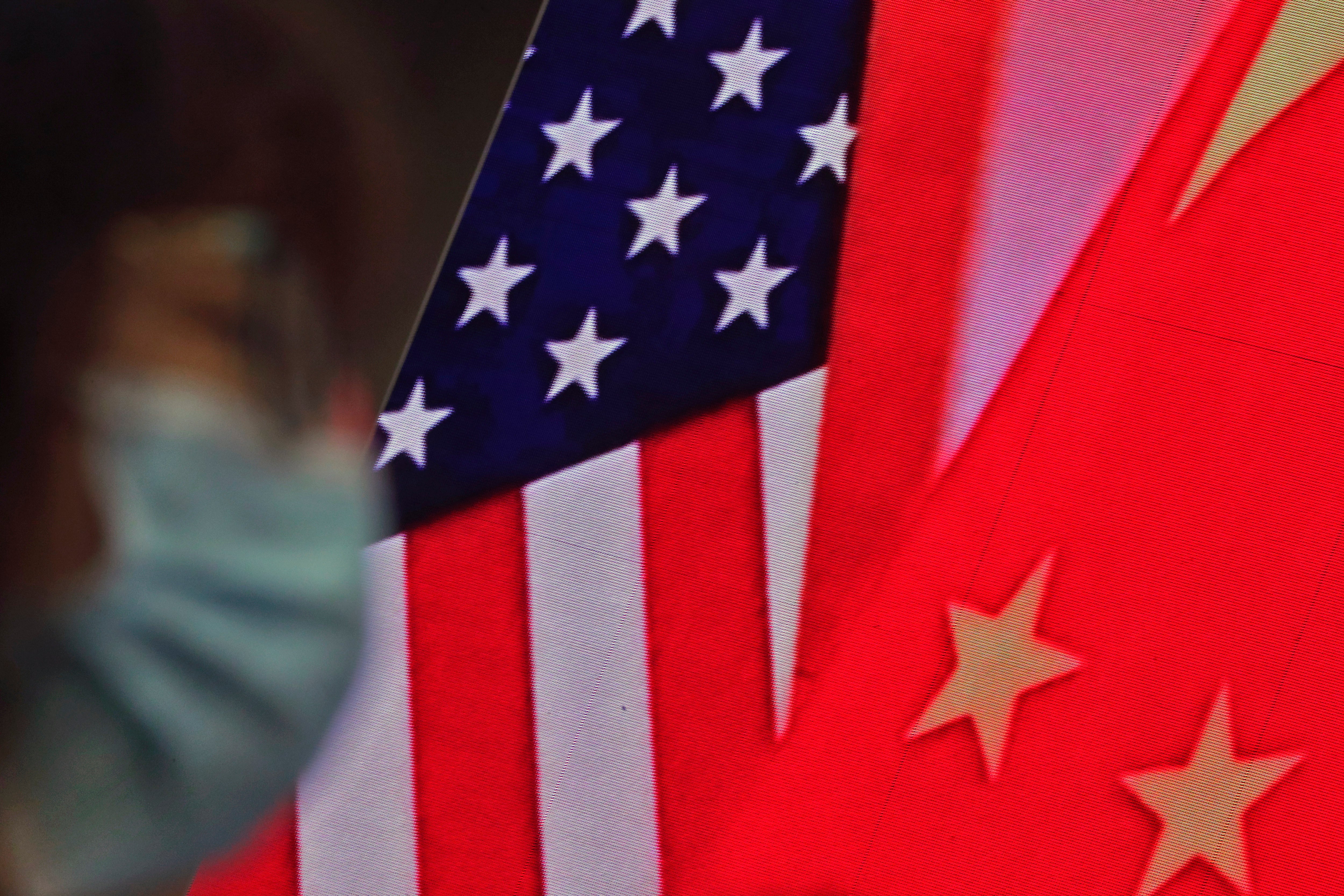Beijing warns US, Japan against collusion vs China
China says it has expressed serious concerns to the United States and Japan over what it calls negative moves and collusion between the two countries against China

Your support helps us to tell the story
From reproductive rights to climate change to Big Tech, The Independent is on the ground when the story is developing. Whether it's investigating the financials of Elon Musk's pro-Trump PAC or producing our latest documentary, 'The A Word', which shines a light on the American women fighting for reproductive rights, we know how important it is to parse out the facts from the messaging.
At such a critical moment in US history, we need reporters on the ground. Your donation allows us to keep sending journalists to speak to both sides of the story.
The Independent is trusted by Americans across the entire political spectrum. And unlike many other quality news outlets, we choose not to lock Americans out of our reporting and analysis with paywalls. We believe quality journalism should be available to everyone, paid for by those who can afford it.
Your support makes all the difference.China said Friday it has expressed “serious concerns” to the United States and Japan over what it calls negative moves and collusion between the two countries against China.
The statement from Foreign Ministry spokesperson Zhao Lijian came just before President Joe Biden welcomes Japanese Prime Minister Yoshihide Suga to the White House on Friday in his first face-to-face meeting with a foreign leader.
That meeting is seen as reflecting Biden’s emphasis on strengthening alliances to deal with a more assertive China and other global challenges.
Zhao told reporters at a daily briefing that Japan and the United States should “take China’s concerns and demands seriously, avoid words and actions that interfere in China’s internal affairs and harm China’s interests.”
“China has no objection to the development of normal bilateral relations between Japan and the United States, but such relations should help enhance mutual understanding and trust among regional countries and contribute to peace and stability in the Asia-Pacific region, and should not target or harm the interests of third parties," Zhao said.
China would “make necessary responses as appropriate," he said.
Biden and Suga see their meeting as a chance to counter messaging from Chinese President Xi Jinping that America and democracies in general are on the decline, after the political turmoil and backing away from global leadership that marked Donald Trump’s presidency.
Japan remains China's traditional rival dating from Tokyo's brutal WWII occupation of much of the country. Relations between Washington and Beijing are tenser than ever over trade, technology, Hong Kong, Taiwan and human rights, particularly China's policies toward Turkic Muslims in the northwestern region of Xinjiang.
U.S. and Chinese naval movements in the Taiwan Strait and South China Sea, which China claims virtually in its entirety, have added to tensions in recent days, following statements from U.S. officials that Beijing may be accelerating its schedule to annex Taiwan by force.
The Biden administration says the primary challenge for the United States lies in managing U.S. policies toward the Indo-Pacific, the main theater in which China is flexing its growing economic and military power. That helped guide Biden’s decision, announced this week, to pull U.S. troops out of Afghanistan and free the administration to focus more on East Asia.